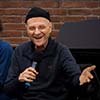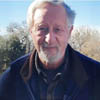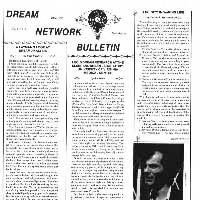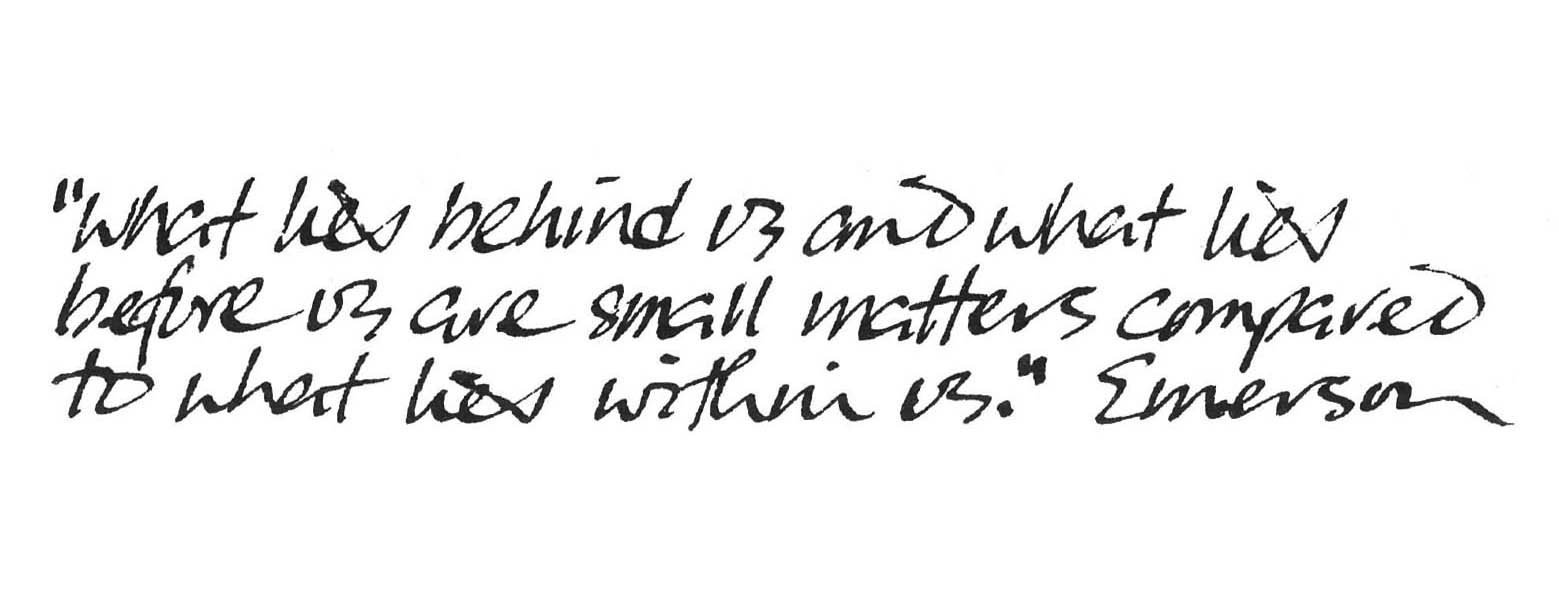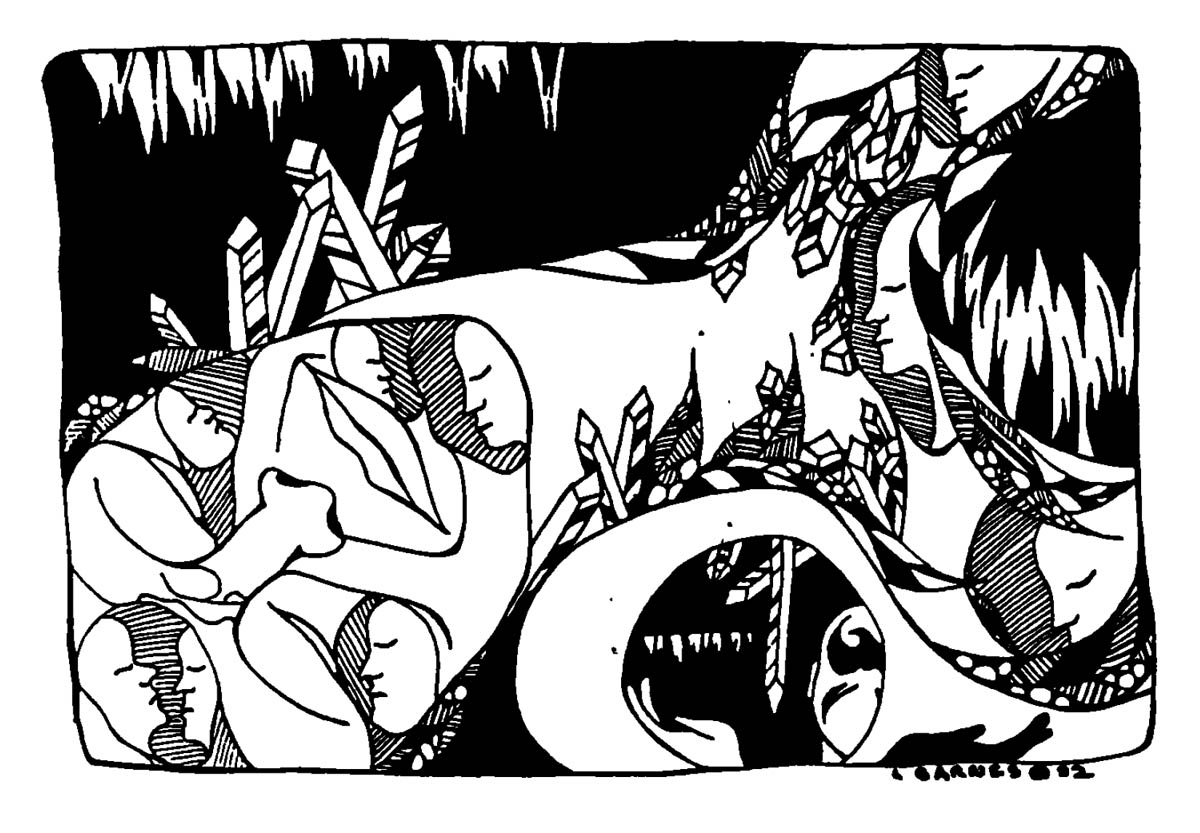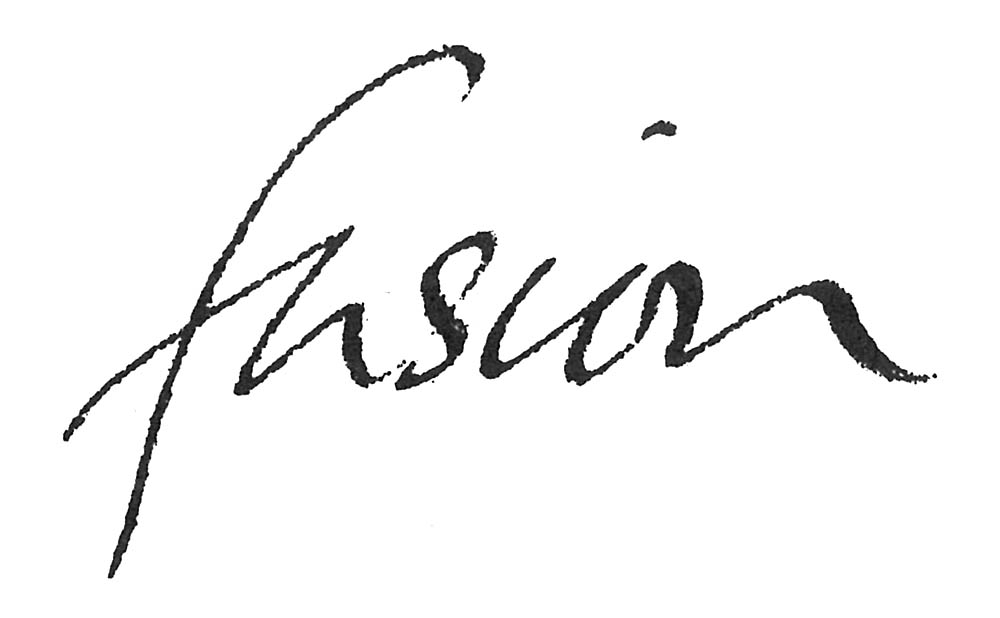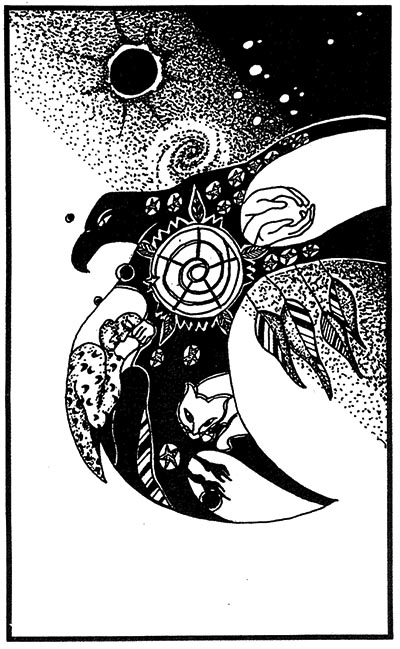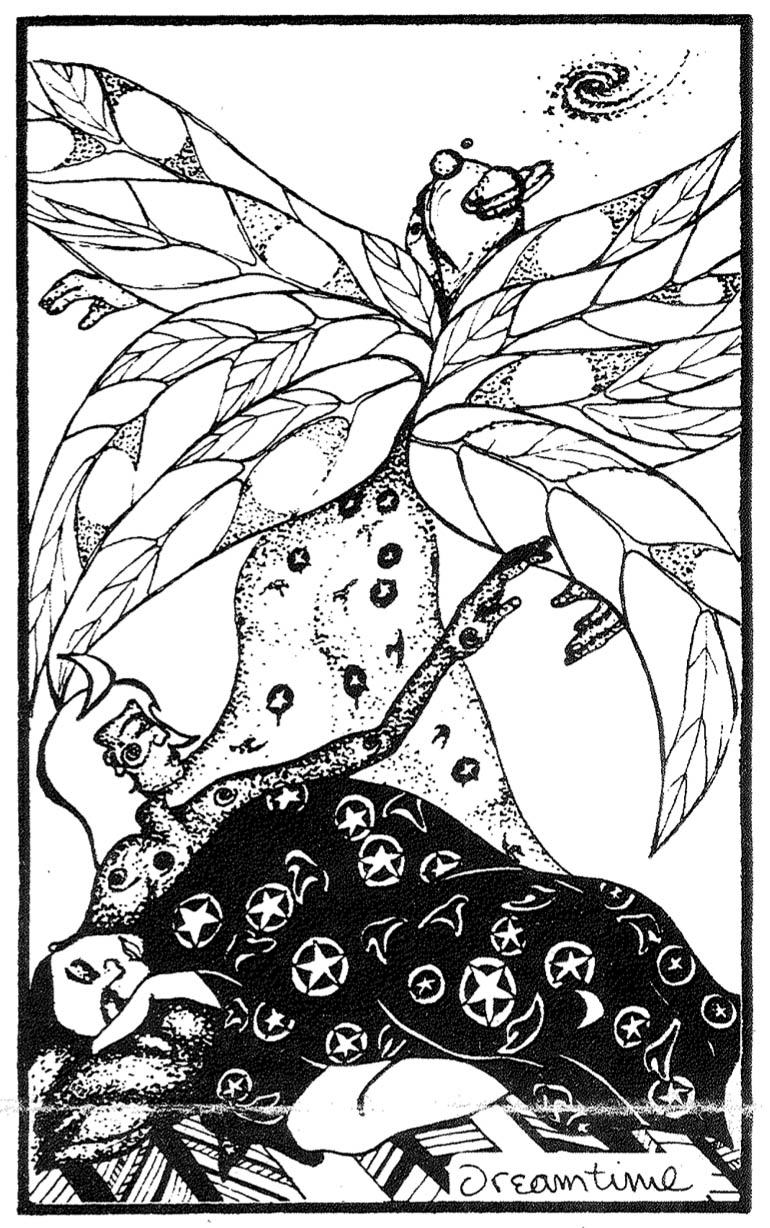
Douglas Cohen: As someone who has had training at the Jung Institute and therefore done dreamwork there, how would you characterize the difference between the dreamwork you evolved and traditional Jungian dream therapy?
Dr. Arnold Mindell: That's a good question. Traditional Jungian dreamwork takes the dream content and makes associations to the dream, or you amplify the dream material with mythological associations. In this kind of dreamwork, we're working not with the dream as if it were something that came out of the night. We're working with the dreaming process as it is happening right here in many channels, not just the visual channel. Working with the dreaming process, very often, right away, people start remembering the dreams they've had... We're saying that we're not dealing with the dreams only, we're dealing with the total dreaming process which goes on in all these different channels: hearing, seeing, feeling, breathing. That's the difference; bringing in the body made a big difference.
D.C.: What would you say has been the origin of this work? How did you get from traditional Jungian dream training to doing this?
A.M.: I got sick about twelve years ago, and I couldn't do anything with it. It was like another part of me that was split off. Stomachaches, diarrhea, aches and pains, and I had to bring all this to the doctor. And meanwhile working with with my dreams. And I felt really radically split. Like something really big was missing.
D.C.: You took your dreams to one place and your body to another place.
A.M.: My body went to a doctor and my dreams went to a dream analyst. That's how I got into it. I just couldn't bear the split anymore.
D.C.: So your own body taught you that the body expresses the unconscious and there's something that needs to be integrated.
A.M.: But I didn't know what. I didn't even know if it was expressing the unconscious or what in the beginning. I didn't know what the hell it was. It was only after a long time of experimenting and coming across this idea of amplification. Experimenting with myself. I did all these different therapies and programs people do. Rebirthing, bioenergetic exercises. I went through kundalini experiences, I practised yoga, everything that was possible. And I left still with feeling I everything that was possible. And I left still with feeling I didn't know what this thing was. I couldn't figure out from all these programs what the meaning of my symptoms was. And then I really started to amplify them and appreciate them and then I did get into this. Then I was able to see, my goodness, they are just dreaming processes happening in the body. So that's what got me into it. I just got bored with the other thing. It was too split off.
...When I saw there was a dream happening in the body I said to myself, "This can't be a new thing, it just can't be a new thing." It's almost obvious, people have been hinting it and practically everybody suspected it, it's not a surprising idea. It can't be brand new. I started going backwards: yoga, Tibetan medicine, Chinese philosophy, and finding ideas that were really close in all of these other philosophies like the Tao in the body according to acupuncture, the Chi energy in China. In India it's the Kundalini energy that moves through you or prana, the subtle body within the real body-and I realized what I was discovering. All these other terms were really terms for the dreaming process, its just nobody ever connected it with dreams before.
D.C.: When you say the dreaming process--you mean an unconscious process that's happening somatically.
A.M.: An unconscious process that's happening somatically and that can be checked out by looking at dreams.
D.C.: What I'm concerned about is people's understanding of a dreaming process happening in the body. So clarifying that is important.
A.M.: Clarifying that for me means experiencing a process happening in your body and realizing, my goodness, the dream I had last night was patterning this whole thing.
D.C.: Can you comment on your relationship to your dreams?
A.M.: Well, I don't sit and think my dreams out so much anymore. I can do that. I'm a pretty good dream analyst, but I'm never satisfied afterwards. I prefer to start with how I'm feeling. "Argh! Oh, I feel shitty, Or I'm unhappy." And then I look at my dreams afterwards.
D.C.: What does having a research orientation mean in light of being a practitioner and therapist. Can you speak to that relationship?
A.M.: Yes. I'm never satisfied with a success. I want to know why it happened exactly, and I'm never satisfied when somebody says, "Gee, that didn't work, I'm not really happy with it."
D.C.: So the goal is not just someone having a successful experience, it is always looking at what's happening.
A.M.: Yes. I'm not interested in just healing. I'm interested in knowing more. It's much more exciting waking yourself up, asking why, what the hell happened…
D.C.: I'm interested in a definition of the dreambody.
A.M.: The simplest way of understanding the dreambody is by talking about the different clannels. The dreambody manifests itself as the tendency to dream, literally, in the way dreams are ordinarily thought of, experiences in the middle of the night. It manifests itself proprioceptively, sudden pains and aches, as a symptom. It can manifest itself as a proprioception such as fatigue, or something spontaneous beyond your ego control. It can manifest itself as spontaneous motion, a little jitter. It manifests itself as spontaneous voices in your head by talking to you, mama and papa, and it manifests itself as dreams and fantasy. The reason I use the word dreambody is because it's an empirical fact that this funny thing is both dream and body. So instead of using the word unconscious, which is harder for me to say what is the unconscious, I can say how this thing manifests itself.
D.C.: So what opportunities will be available for training in process oriented dreambodywork?
A.M: Well, we're starting a research center in Zurich, and also it looks like another one's beginning in Denver. And now after five or six years of work, there are people like Joe Goodbread and Barbara Croci who are pretty good and are able to do it pretty well. Some of them are better than I am at it. Each has their own specific background they bring to it. There is not one particular background necessary for this work. Barbara is interested in yoga, Joe is an engineer. Another person I've been working with is a dancer. Everybody has strengths in specific channels, weaknesses in other channels.
D.C.: Where in the U.S. will your book, Dreambody, be available?
A.M.: I don't know. Sigo Press and bookstores all over.

